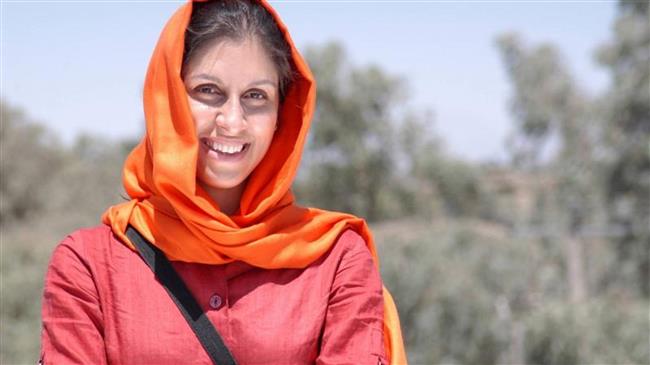UK extension of diplomatic protection to Zaghari against intl. law: Iran
Tehran has lashed out at Britain for providing diplomatic protection to Iranian citizen Nazanin Zaghari, who is serving her term in Iran on espionage charges.
British Foreign Secretary Jeremy Hunt announced on Friday that London had decided to give Zaghari diplomatic protection “as part of the Government’s continuing efforts to secure her release.”
“Affording diplomatic protection in Nazanin’s case represents formal recognition by the British Government that her treatment fails to meet Iran’s obligations under International law and elevates it to a formal State to State issue,” a statement by the UK Foreign Office said.
“I have today decided that the UK will take a step that is extremely unusual and exercise diplomatic protection,” Hunt said in a video message.
My statement on exercising diplomatic protection for Nazanin Zaghari-Ratcliffe. #FreeNazanin pic.twitter.com/xP7Oq2fuL3
— Jeremy Hunt (@Jeremy_Hunt) March 7, 2019
In his message, Hunt repeated his earlier allegation that Iran had denied medical care to Zaghari, a claim that, according to Iranian Foreign Ministry spokesman Bahram Qassemi, “indicated his lack of knowledge on the case.”
Read more:
In reaction to Hunt’s statement, Iranian Ambassador to London Hamid Baeidinejad said the UK government’s extension of diplomatic protection to Zaghari contravenes international law.
“Govts may only exercise such protection for own nationals. As UK Govt is acutely aware, Iran does not recognize dual nationality. Irrespective of UK residency, Ms Zaghari thus remains Iranian,” he said in a Friday tweet.
UK Govt's extension of diplomatic protection to Ms Zaghari contravenes int'l law. Govts may only exercise such protection for own nationals. As UK Govt is acutely aware, Iran does not recognize dual nationality. Irrespective of UK residency, Ms Zaghari thus remains Iranian.
— Hamid Baeidinejad (@baeidinejad) March 7, 2019
Iran’s intelligence authorities arrested Zaghari at Imam Khomeini International Airport in April 2016 as she was on her way back to London.
She was subsequently put on trial and handed a five-year jail term after being found guilty of spying and spreading propaganda against the Islamic Republic.
British media had claimed that she worked for the Thomson Reuters Foundation and was on vacation in Iran when she was arrested. However, former UK Foreign Secretary Boris Johnson said in a statement to a parliamentary committee in 2017 that Zaghari had been “simply teaching people journalism.”
Johnson's remarks amounted to an accidental confession that Zaghari was plotting against the Iranian government, but British authorities described them a gaffe.
Diplomatic protection is a rarely-used tool under international law, which gives a country the right to challenge another state over the treatment of one of its nationals or companies.
It is very different from diplomatic immunity, which applies to accredited diplomats and provides them with safe passage. It is also different from consular assistance, where a state offers assistance to its nationals in another country.
Britain has not afforded diplomatic protection to anyone in living memory prior to Zaghari, Sky TV reported.
The last time the UK government is known to have used this power is in 1951, in support of a British-Iranian oil company.
The move elevates the case of the Iranian citizen from a consular issue to a formal matter between Iran and the UK and also opens up a number of legal and diplomatic routes.
'Capitulation': Israeli officials and media concede Gaza defeat as truce unfolds
'Gaza has won': Social media users react to ceasefire with mix of relief, joy
Iran seeks South Korea’s assistance for AI, fiber-optic projects
VIDEO | Iran's 'Eqtedar' (Power) maneuver
Israel hits HTS military target in Syria for 1st time since fall of Assad
VIDEO | Press TV's news headlines
Israel has slaughtered 13,000 students in Gaza, West Bank
VIDEO | More Zionist than Zionists: Biden’s legacy to be defined by Gaza genocide











 This makes it easy to access the Press TV website
This makes it easy to access the Press TV website